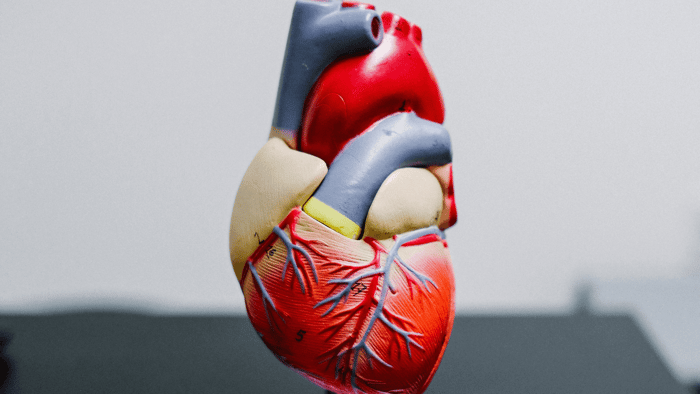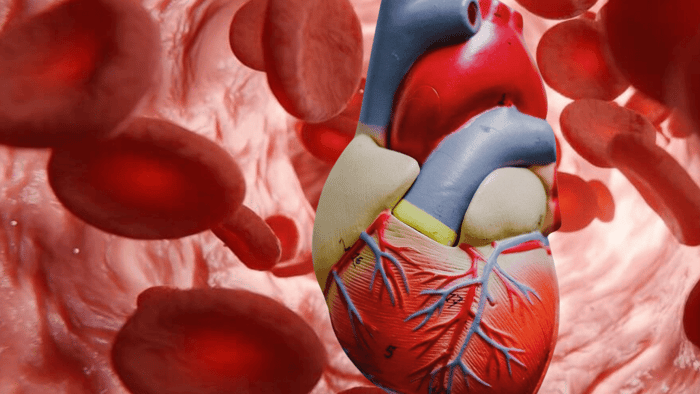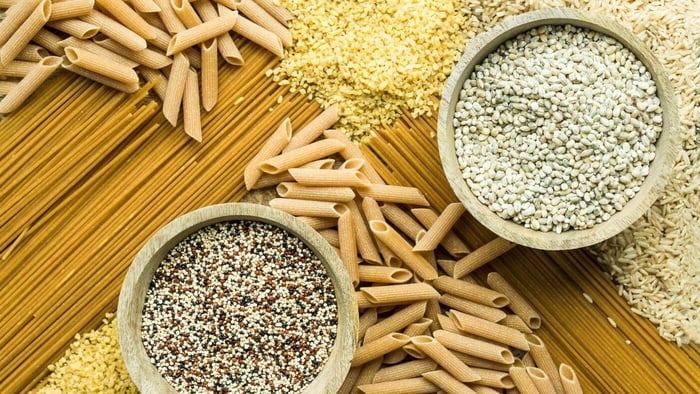Table of Contents
If you have elevated blood pressure, lowering it reduces your risk of heart disease. Conventional doctors may prescribe beta-blockers, ACE inhibitors, or other pharmaceuticals. However, there are ways to lower blood pressure - evidence-based lifestyle steps that help maintain healthy blood pressure, without the common side effects of some medications.
There are obvious ways to help, like lowering stress and healthy eating, but some of our evidence-based tips may surprise you. Salt, sleep, and supplements (e.g. nattokinase or beetroot) can play a role in cardiovascular function and blood-pressure balance.
Some people may have slightly elevated blood pressure and would benefit from lowering it, while others may have hypertension (significantly high blood pressure). Either way, it’s critical to understand your options, and learning ways to lower blood pressure, to support healthy blood pressure levels.
1. Eat a Heart-Healthy Diet
We believe that food is medicine, and a heart-healthy diet is the key to healthy blood pressure levels. Healthy habits like lowering sodium consumption and increasing your intake of healthy fats, vitamins, and minerals can reduce your risk of hypertension and heart attack.
Here are natural dietary approaches to stop hypertension: (1,2,3,4,5,6,
Eat potassium-rich and fibrous foods
Consume plenty of citrus in your balanced diet
Embrace whole grains, like quinoa, brown rice, barley, and oatmeal
Enjoy healthy fats, like avocados and fatty fish (don’t be afraid of saturated fat)
Avoid processed food and fried food, which typically contain industrially made trans fats
Read food labels before you buy, leading to an informed eating plan
Lower your sodium intake (watch out for frozen meals or fast food)
Try the DASH diet or an anti-inflammatory meal plan like the Mediterranean diet
Cook at home when possible so you’re in control of the ingredients
Read Next: 6 of the Best Ways to Lower Cholesterol
2. Get Regular Exercise
Regular physical activity lowers your risk of most diseases and disorders, so it’s no surprise regular exercise can also lower your blood pressure. (7)
We recommend 30 minutes of aerobic exercise, 5 times a week at a minimum. Try out any of these exercises, and switch them up throughout the week to give your exercise routine some variety:
Jogging
Swimming
Cycling
Dance
Jump rope
Tennis
Boxing
Maintaining a healthy weight through a healthy diet and regular exercise reduces your risk of hypertension, obesity, and heart problems. Make exercising more enjoyable by listening to music or audiobooks while on a run, and find ways to celebrate yourself after each exercise session.
Want to learn a better predictor of heart disease? Check out our article Apolipoprotein B: A Key Heart Health Marker You Shouldn’t Ignore.
3. Reduce Your Stress Levels
Lowering your stress can improve your health in infinite ways, including stabilizing your blood pressure. Daily stressors can spike your blood pressure, and chronic stress can lead to dangerous hypertension.
Try our tips for reducing stress and therefore reducing high blood pressure: (8,9,10,11)
Take a break from whatever you’re doing
Limit the dopamine addiction that develops from consuming social media
Stress can sometimes cause quick upticks in blood pressure. Reducing stress levels can just as quickly return stress-induced blood pressure to normal levels.
4. Get Good Sleep
You need to get 7-8 hours of shut-eye, or you’re at higher risk of hypertension. (12) You also need your sleep to be high quality in order for your blood pressure to maintain a healthy level. (13)
Getting 7-8 hours: If you shortchange yourself of much-needed rest, you could suffer from cumulative “sleep debt,” during which your body, including your heart and blood vessels, is not functioning. Not getting enough sleep can also increase inflammation, which is bad for blood pressure.
Getting high-quality sleep: If you force yourself to try to go to sleep at different times every night, your sleep quality suffers. If you keep music on while you’re in bed, that may prevent you from fully going to sleep. If it’s too hot or too cold, it’s not optimal sleep. Additionally, you’ll want to avoid drinking caffeine within 8 hours of bedtime. Getting high-quality sleep can reduce inflammation, stress levels, and blood pressure.
5. Avoid Smoking And Drinking
Both smoking and drinking more than 1-2 alcoholic beverages a day aren’t great for you or your body. These toxins cause so many health problems, so it’s no shocker they both increase your risk of hypertension. Limit alcohol intake and quit smoking to lower blood pressure.
Smoking: Both tobacco smoking and non-tobacco vaping have been shown to increase your risk of high blood pressure by significant margins. (14,15)
Drinking alcohol: For heavy drinkers (>1/day in women, or >2/day in men), reducing alcohol intake reduces your risk of high blood pressure and other heart problems. (16)
6. Try Probiotics and Supplements
Many dietary supplements have been studied for their ability to promote healthy vascular tone and overall cardiovascular wellness. Here are our favorite evidence-based supplements for blood pressure and heart health support: (17,18,19,20,21,22,23,24,25)
Nattokinase, found in Toku Flow
Beetroot (rich in nitrates)
Fiber (psyllium)
Fish oil (rich in omega-3 fatty acids)
Read Next: 7 of The Best Alternatives to Statins
7. Have Regular Check-Ins
Get blood pressure readings regularly. If you have blood pressure-related health conditions, you need an at-home blood pressure monitor for your wrist or upper arm that reads diastolic and systolic blood pressure.
Talk to your doctor before making changes to your lifestyle and diet. Ask whether any new supplement could interact with any medications you’re currently on or impact any disorders you have.
Make sure all these changes are implemented slowly. Drastic changes in your blood pressure could lead to health problems.
Regularly check your systolic and diastolic blood pressure levels, as well as your cholesterol and blood sugar levels. Even though these are exaggerated as cardiovascular disease risk factors, they are still factors. If these biomarkers aren’t changing despite your lifestyle and diet changes, there may be an underlying condition you don’t know about.
If you’re interested in getting a comprehensive picture of your cardiovascular health, we recommend talking to a healthcare professional about testing your ApoB and Lp(a) levels, as well as small LDL particle levels (as opposed to total LDL cholesterol, which includes less harmful large LDL particles).
Please note that if your blood pressure is higher than 180/120 – or if you’re experiencing chest pain, shortness of breath, numbness, changes in vision, or difficulty speaking – you’ll want to call 911.
Read Next: 8 Ways to Improve Circulation
The Bottom Line
Having elevated blood pressure may increase your risk for heart disease — the number one cause of death in the United States. There are safe, natural, science-based ways to lower blood pressure and treatments for hypertension - or to support normal blood pressure levels.
While applying these ways to lower blood pressure to support healthy blood pressure - make some healthy lifestyle changes and consider supplements like beetroot or nattokinase (found naturally in natto and our very own Toku Flow).
Curious about additional cardiovascular support? Explore Toku Flow, our nattokinase-based powder designed to support healthy blood flow and overall heart wellness.*
FAQs
What is the 60-second trick to lower blood pressure?
If your blood pressure was caused by a sudden stressor, you may need to quickly lower blood pressure. Try deep breathing, prayer, or mindfulness exercises to reduce stress in 60 seconds.
Can drinking water help lower blood pressure?
Drinking water may help lower blood pressure, primarily if you’re dehydrated.
Staying hydrated is good for your health, but drinking water while you’re already hydrated is unlikely to significantly lower your blood pressure.
What is hypertension?
Hypertension is clinically high blood pressure. Hyper- means “high” (literally “over” in Greek), and tension is related to pressure.
What are the side effects of blood pressure medications?
The side effects of blood pressure medicine depend on which type of medication you’re taking:
ACE inhibitor side effects include cough, fatigue, dizziness, headache, and low blood pressure.
Alpha-blocker side effects include dizziness, headache, physical weakness, sexual dysfunction, and low blood pressure.
Beta-blocker side effects include fatigue, dizziness, nausea, cold extremities, sleep disturbances, depression, and sexual dysfunction.
Calcium channel blocker side effects include fatigue, dizziness, headache, swelling in the extremities, constipation, and heart rate changes.
Diuretic side effects include frequent urination, dehydration, fatigue, dizziness, muscle cramps, headache, and low blood pressure.
Sources
Potassium Intake and Blood Pressure: A Dose-Response Meta-Analysis of Randomized Controlled Trials
The Relationship Between Dietary Fiber Intake and Blood Pressure Worldwide: A Systematic Review
Relationship of dietary monounsaturated fatty acids to blood pressure.
Effect of Dietary Sodium on Blood Pressure: A Crossover Trial.
Associations between Nature Exposure and Health: A Review of the Evidence
Meditation and Its Mental and Physical Health Benefits in 2023
Caffeine as a Factor Influencing the Functioning of the Human Body—Friend or Foe?
Sleep duration and blood pressure: recent advances and future directions
Garlic and Hypertension: Efficacy, Mechanism of Action, and Clinical Implications
Effect of Green Tea on Blood Pressure in Healthy Individuals: A Meta-Analysis
*These statements have not been evaluated by the Food and Drug Administration. This product is not intended to diagnose, treat, cure, or prevent any disease.



